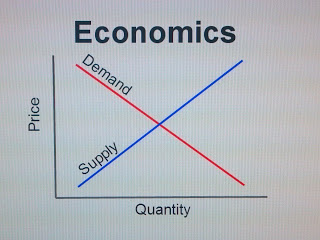Ed Glaeser and Joe Gyourko posted The Economic Implications of the Housing Supply which is forthcoming in The Journal of Economic Perspectives. In it, they
review the basic economics of housing supply and the functioning of U.S. housing markets to better understand the impacts on home prices, household wealth and the spatial distribution of people across markets. Section II documents the state of housing affordability in the U.S., and begins with three core facts about housing supply. First, when building is unrestricted by regulation or geography, housing supply curves seem relatively flat, meaning that we can approximate reality by referring to a single production cost. Second, both geography and regulation severely restrict the ease of building in some parts of the country. These constraints raise building costs both directly, by increasing time delays and reducing the amount of available land, and indirectly, by ensuring the homes are produced more on a one-by-one basis rather than in bulk. Third, the supply of housing is kinked and vertical downwards because housing is durable. (2, citation omitted)
These are themes that Glaeser and Gyourko have touched on before, but this essay does a service by updating them ten years after the financial crisis.
Glaeser and Gyourko have consistently hit on some important points that can garner attention at the national level , but there has been no real action on them as of yet:
- where supply is regulated, housing costs more;
- heavy land use regulation in places like NYC and SF reduces the nation’s overall economic output; and
- existing homeowners tend to oppose new projects, which is consistent with their financial self-interest.
Glaeser and Gyourko do not give up hope that policymakers can craft solutions that deal with the political economy of housing construction. One first step would be to develop a toolkit of carrots and sticks that can be employed at the national and state level to incentivize local governments to take actions that are in the interest of their broader communities and the nation as a whole.
We know we need more housing in highly productive regions. We just need to figure out how to build it.


